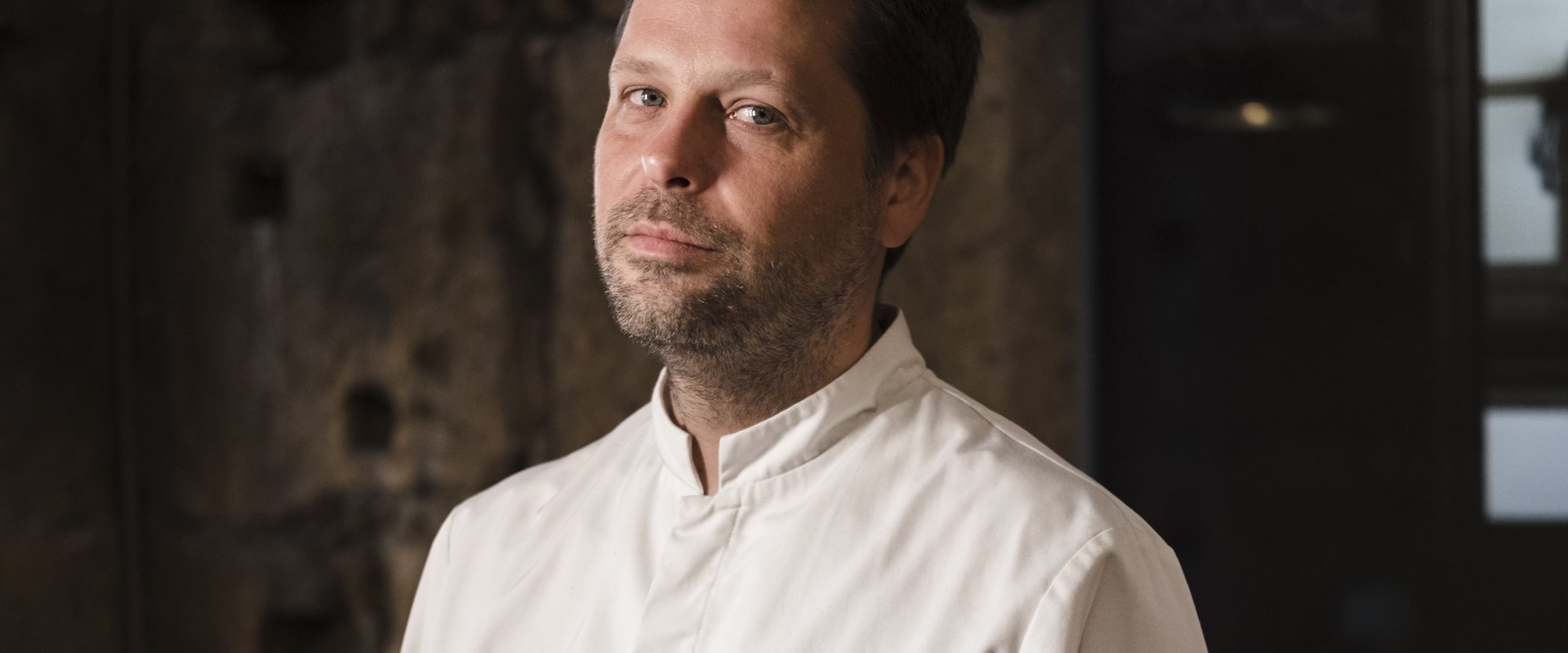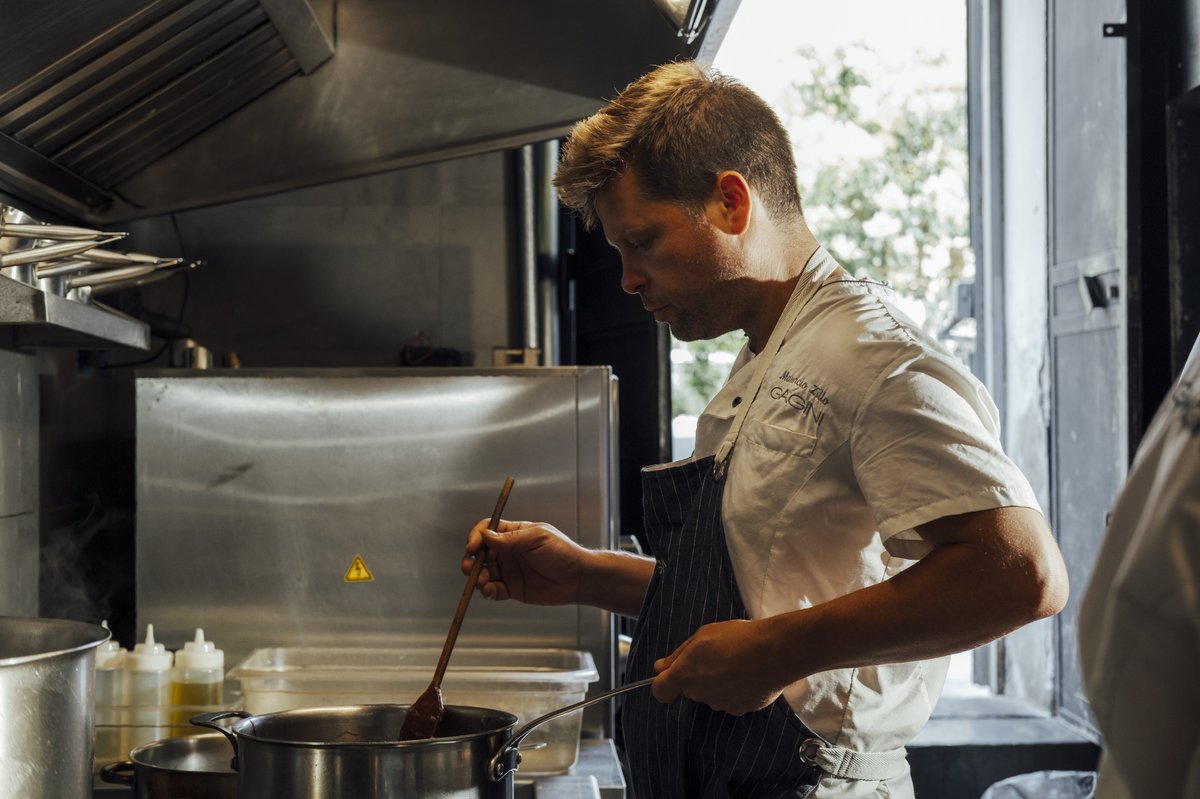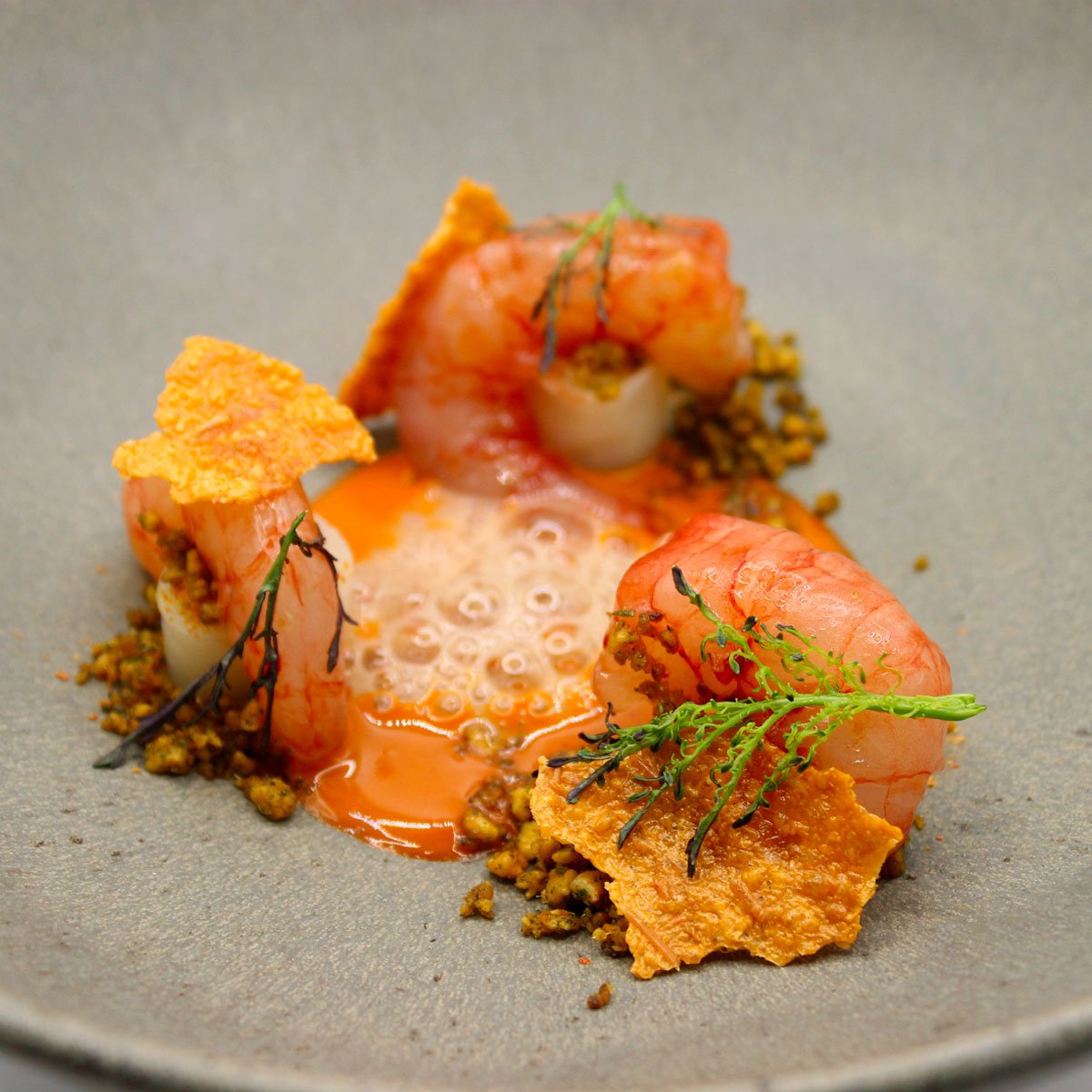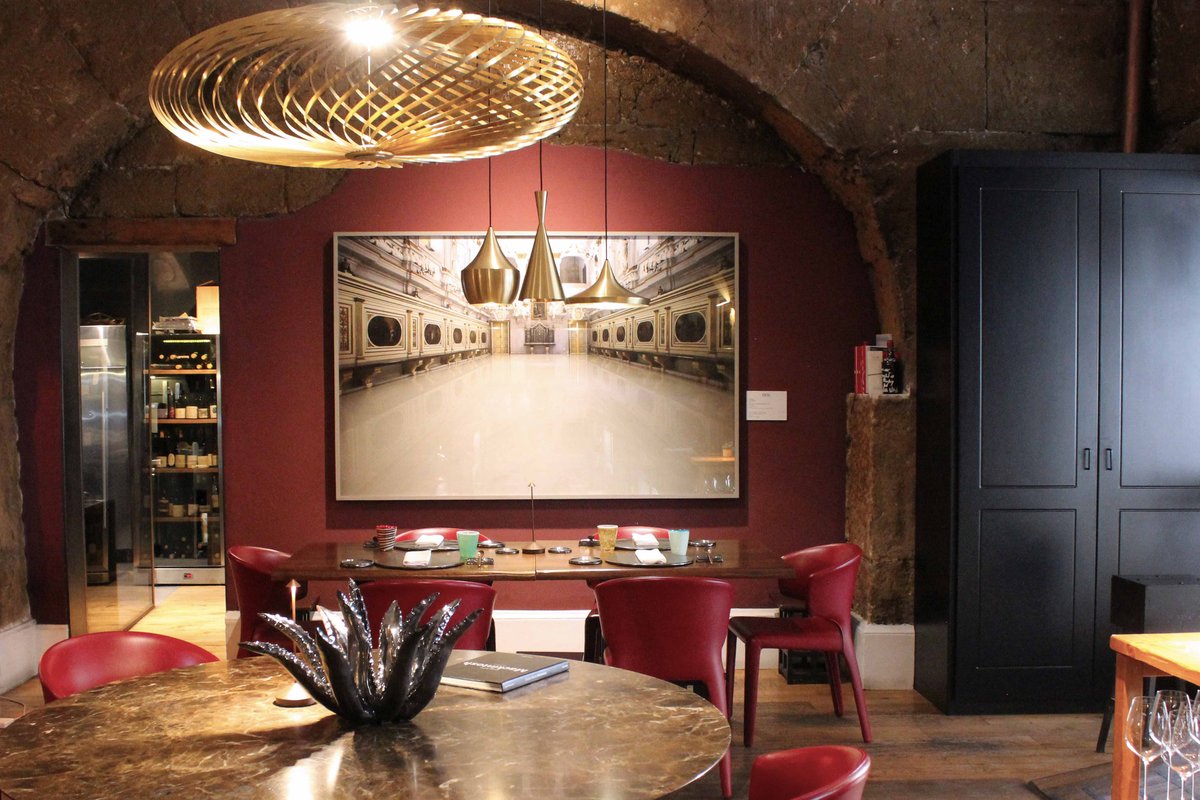Mauricio Zillo: Palermo Chose Me

The vibrant Mediterranean city of Palermo is host to just a few Michelin-star restaurants. Gagini is one of them.
Chef Mauricio Zillo is originally from São Paulo, while also having strong links to Italy through his family heritage. He graduated in business management and worked at a bank, before changing paths entirely and embarking on a culinary career. He studied at Le Cordon Bleu in Paris, then moved on to work at some of the most prominent restaurants in the world such as the Brazilian restaurant D.O.M. and Arzak in Spain.
But it was Italy that inspired him enough to settle in one place. He arrived in Milan back in 2011, heading to the Naviglio Grande district, the home of Al Pont de Ferr, a restaurant that was earning great acclaim at the time. This establishment played a crucial role in Zillo’s career as he worked under the guidance of head chef Matias Perdomo. Zillo tells us “Perdomo gave me the opportunity to use my brain. He knew exactly how things should be. I remember a lesson he gave me when I was 18 years old that has stayed with me throughout my career.”
Zillo shared the words distilled by Perdomo. He said "I don't care about teaching you all the culinary subjects. I need to teach you how to stand on your own two feet in a kitchen which is a completely different skill set. I can teach you how to cook in a year, but I have to help you understand how to navigate within a kitchen. This always stays with me, because it's not just about making a dish, it’s a much more complex job to savour.”
Zillo’s arrival at Gagini took place in the midst of the pandemic, at the bequest of Sicilian entrepreneur Franco Virga.
And so he returned to Italy in 2020 when Italy was still shut down, this time to Sicily, to the Gagini Restaurant. Two years later, under Zillo’s guidance, Gagini was awarded a Michelin star.
“I came from a three-star environment where everything is highly regimented, and everything we prepare is decided two days in advance. At Gagini, it’s different. When something is put on the plate, we know we need to adapt dynamically.

Mauricio Zillo credit: Fabio Florio
Zillo avoids categorising Gagini as ‘fine dining’: “We don’t really do fine dining in Gagini, it’s perhaps better to call it Palermian fine dining, something a little different to the traditional fine dining experience.”
This idea translates into the cooking approach that respects the great biodiversity of the region.
“The biodiversity I’ve seen in Sicily I haven’t seen anywhere else. I have just returned from Taiwan, and there was much to see there. Obviously, the products are different, but the biodiversity, although immense, still doesn't quite compare to Sicily. However, after Sicily, Taiwan has a biodiversity that surprised me a lot.
“I have now established a relationship with the farmers. When they send me their produce, they simply deliver whatever is available. There's nothing reinterpreted because I'm not Italian, nor Sicilian. Everything comes from a great, great sense of respect to a traditional, ancient cuisine”.
One of the exemplary dishes served at Gagini is a Bidì wheat tagliolini served cold with almonds from the heart of Etna, mosciame (dried fish), and red tuna roe, inspired by the excellent Sicilian produce, combined with the summer heat and the Japanese tradition of eating cold pasta in summer.
“Gagini is a very lively place with ‘unbuttoned shirts’ so to speak. People come here to dine and feel good.”
“Having lived in Paris, and also in Barcelona, which has a similar feel to Palermo but more international, I notice many parallels. Cities such as Barcelona, Naples, and Palermo are very similar. Beyond gastronomic culture, they propose a completely different way of thinking about and living with food.”
People often ask, "How do you get the best tomatoes?" It's not just about the tomatoes themselves; it's about the people you meet, the Sicilian farmers. To me, they are the most intelligent and knowledgeable individuals. Unfortunately, today, people from cities see rural life as something simple, and this isn’t just here, it’s worldwide. but in the countryside, these people have a wisdom and knowledge that's a pleasure to experience. Sitting down to have a coffee and listening to their stories helps you understand more about where you are, especially for someone from outside.I realized I needed to share these stories because each person brings something different to the table. This is what I need to tell. It's beautiful to tremble with excitement about this, just like buying a Suzuki to load goods and visit these people. It's all part of something truly wonderful.”
Being Brazilian-born, Zillo understands the Palermian landscape and perceives these cultural aspects. Having that inner warmth and fire himself, he’s capable of understanding this kind of culture and serving the food while taking this into close consideration.
“I finished high school in Barcelona in 1998, so I know Catalonia and Barcelona well. Locals live there but spend weekends at their houses on the Costa Brava, not in Barcelona. In contrast, Palermo has many more locals living in the historic centre. They truly live in the city, even though they take regular trips.”
Zillo has been a friend and colleague of Vincenzo Genuardi since his time in Milan and Genuardi now works with him as a pastry chef at Gagini.
Genuardi brings back to his homeland, Sicily, the techniques he learned from the best across Italy and France.
He trained at the International School of Italian Cuisine ALMA, under the guidance of Gualtiero Marchesi. His career includes experience at several Michelin-starred restaurants, and he worked for over three years with AMPI (the Italian Master Pastry Chefs Academy) master Giuseppe Amato at La Pergola, led by chef Heinz Beck. He has also contributed to projects at the Hotel Metropole (in collaboration with chef Joel Robuchon).
And how would you serve a dessert that is not part of the traditional cuisine to Palermitans in a restaurant?
In this regard, Genuardi and Zillo are completely aligned.


According to Zillo “There’s also a desire to always be in a position to say, "My grandmother did it better." So, why offer something that people can compare? It should be something new. This makes us feel better.
This feeling of presenting something different, with pride, because each of us has a journey, whether we are Sicilian or from elsewhere, unites us here. This journey brings together the city, those who work here, and the people.”
Genuardi continues with his take on the pleasure of eating and the importance of being in the moment: “We need to return to the act of eating, in my opinion. We identify a little with certain chefs, but I think we need to stop going to someone's house and expecting to get exactly what we want. Instead, we should sit down with an open mind, even taste things we might not like, and try to understand the intent behind them.”
“It's often said that as Italians, it's impossible to pass down or have a historical culinary tradition because it was never codified. Recipes vary not just from town to town but from door to door. This variability likely prevented us from having a written gastronomic history because these recipes were family secrets, passed down from mother to daughter.”
If the origin of a dish like baccalà from the Nebrodi isn't from my grandmother, that doesn't make it any less Sicilian. If I want to eat excellent pasta with sardines, it's about staying true to the essence while adapting to different contexts. Each person brings their own touch to the cuisine.”
